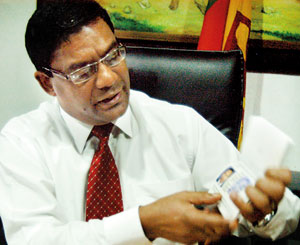Global business coalition announces human trafficking initiative
View(s):New York, –Some of the most iconic names in global business have joined together to form The Global Business Coalition Against Human Trafficking (gBCAT), a group of global corporations that recognizes that business can play a role in the effortto end human trafficking and all forms of modern day slavery. According to the International Labour Organization, there are nearly 21 million slaves in the world today.
After working for over a year together and independently, gBCAT formally announced its mission to mobilize the expertise, resources and voice of coalition members to help fight against human trafficking, which includes all forms of forced labor and sex trafficking, most notably child prostitution. Founding members include: ManpowerGroup, NXP, ExxonMobil, The Coca-Cola Company, Carlson, Delta Air Lines, LexisNexis, Microsoft, and Travelport, according to a gBCAT media release. Capitalizing on the organizational strengths, resources and reach of global businesses, gBCAT seeks to impact the issue of human trafficking. gBCAT members are committed to assisting in the eradication of trafficking in supply chains where forced labor may unknowingly be present. Another area of focus is sex trafficking, with a particular emphasis on the commercial sexual exploitation of children, most notably in the travel and tourism industry. Global businesses that demonstrate a similar commitment are invited and encouraged to join gBCAT, the statement said.gBCAT is a thought leaders’ forum to develop and share best practices for addressing the vulnerability of businesses to human trafficking in their operations. gBCAT will pursue such initiatives as training modules for employees, general awareness-raising among consumers, suppliers and partners, best-practice sharing with other companies and assistance for other companies that wish to engage in this issue. gBCAT members will also continue their collaboration with governments, NGOs and other members of civil society to work towards the cross-sector solutions necessary to fight all forms of modern slavery.
“Fully engaging the corporate community is a critical step in the war to end modern day slavery. Human trafficking is a global problem which can only be eradicated by mobilizing global solutions. Corporations need to take action, get involved and become part of the solution,” noted David Arkless, President, Global Corporate and Government Affairs, ManpowerGroup and co-chair of gBCAT.
gBCAT will focus on four key areas where global companies have the most significant impact:
1.Training and Education: Providing guidance to companies to implement internal training programs and best practices.
2.Supply Chains: Working to identify and prevent forced labor in supply chains and operations.
3.Sex Trafficking: Raising awareness of company policies to combat sex trafficking, with a particular focus on the sexual exploitation of children in travel and tourism.
4.Communication and Outreach: Supporting and developing gBCAT’s coalition members’ thought leadership, transfer of best practices and public engagement on efforts to abolish human trafficking and all forms of forced labor.
“The Business Coalition’s leadership will not only allow companies to share best practices in preventing modern slavery in their supply chain, but will also serve as a catalyst for philanthropic and policy innovation. Through robust private-sector engagement, the scourge of sex trafficking and forced labor can truly be relegated to the history books,” said Luis CdeBaca, Ambassador-at-Large to Monitor and Combat Trafficking in Persons, U.S. State Department
Follow @timesonlinelk
comments powered by Disqus

















